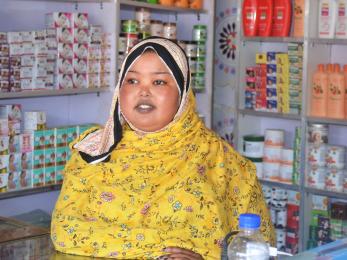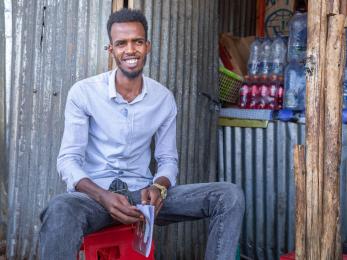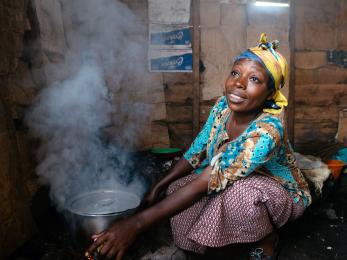A Market-Integrated Response to an Emergency in Kyrgyzstan

In an article published on the Humanitarian Practice Network, Mercy Corps' Robin Currey, Meghan Neumann, and Patrick Eckford detail market-integrated emergency response in the post-conflict provinces of Osh and Jalal-Abad in southern Kyrgyzstan.
Mercy Corps has been working in Kyrgyzstan since 1994, focusing on micro-entrepreneurship, food security, small-holder farming and livestock development, and conflict mitigation. Established in 2004 through the consolidation of five Mercy Corps-affiliated micro-credit agencies, Kompanion, a community development financial institution specializing in group lending, now employs over 1,000 staff, has 94 offices and is Kyrgyzstan’s largest micro-finance institution, per number of customers. In June 2010, conflict erupted in Osh and Jalal-Abad provinces of southern Kyrgyzstan. Thousands of households lost family members, homes and possessions, as well as business assets. When the conflict broke out, over 45,000 of Kompanion’s 109,900 clients were in the affected areas. Many of these clients needed credit relief quickly and additional assistance to recapitalize their businesses. Robin Currey, Meghan Neumann and Patrick Eckford (all Mercy Corps team members) wrote an article on the emergency assistance Kompanion provided for its clients and the mechanisms put in place to provide it. Kompanion and Mercy Corps implemented programming designed to spur livelihood recovery for micro-entrepreneurs in southern Kyrgyzstan. This is in line with the organization’s commitment to responding to short-term needs while remaining aware of and focused on long-term development processes and opportunities to ‘build back better’. This was Kompanion’s first emergency relief intervention, and its model of emergency response is applicable to other micro-finance institutions (MFIs) and development organizations working in post-conflict contexts.


